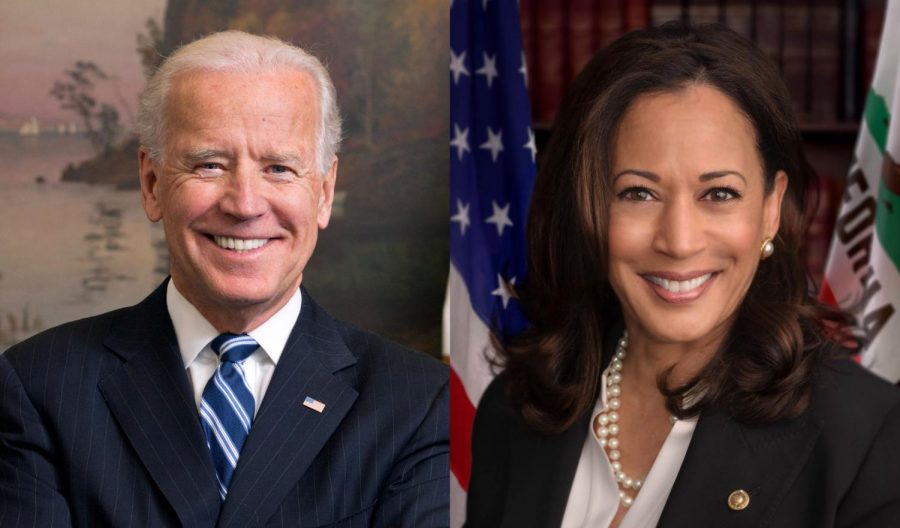Biden prepares for presidency
This picture was accessed via Google Images under the Creative Commons License.
President-elect Joe Biden and Vice President-elect Kamala Harris will be sworn into office on January 20, 2021.
The 46th President of the United States will be sworn into office on Wednesday, January 20, 2021. Although the inauguration ceremony may be far from traditional, President-elect Joe Biden is still planning on starting his presidency off with a commitment to safety and an action plan to promote positive change immediately.
While a typical presidential inauguration includes many events such as a procession to the Capitol, an elaborate swearing-in ceremony for the Vice President and President, a honorary departure ceremony for the previous President and an inaugural luncheon and ball, the traditional pomp and circumstance surrounding the president-elect’s transition will be set aside in order to prevent the spread of COVID-19. To do this, Biden has stated that his inauguration will follow a similar model to the Democratic National Convention, a mainly virtual event that was hosted with the use of live streams this summer.
Along with pandemic precautions changing the layout of the inauguration, President Donald Trump’s ongoing refusal to accept the election results could also reshape the traditional celebration of a peaceful transfer of power. Although there is no legal requirement for Trump to be at the ceremony for the formalities of transferring power, his absence would be unprecedented and could greatly alter the normal course of inaugural events.
Regardless, by holding such a momentous event while still abiding by proper safety regulations, Biden has an opportunity to focus the nation’s attention on the importance of public health guidelines that he wants to emphasize within his first 100 days.
In regards to the ongoing pandemic, Biden has already announced a team of advisers that will spearhead his pandemic response and stated, “The advisory board will help shape my approach to managing the surge in reported infections; ensuring vaccines are safe, effective, and distributed efficiently, equitably, and free; and protecting at-risk populations.”
Biden’s proposed COVID-19 response plan calls for expanding testing resources, enacting legislation that would create a separate COVID-19 Racial and Ethnic Disparities Task Force, introducing new relief packages, establishing an effective distribution plan for vaccines and mending the United States’ relationship with the World Health Organization.
Once Biden establishes these initiatives to control the pandemic, he has many other goals that he wishes to accomplish in his first year in office.
On immigration alone, Biden has proposed more than a dozen initiatives to complete within 100 days of taking office. These goals include the production of comprehensive immigration legislation that creates a pathway to citizenship for current undocumented immigrants, the end to the practice of separating immigrant families at the border and the establishment of a task force to reunite families that have already been separated at the border.
Also, in response to the national outcry that erupted over police killings of African Americans, Biden plans to institute a national police oversight commission immediately. Within his first year, Biden wants to extend his mission for social justice past the United States and organize an international summit where democratic leaders can discuss ways to expand human rights.
And, in one of his longest-standing campaign promises, Biden plans to promptly reenter the United States into the Paris Climate Accord to shift the country’s focus back to protecting the planet.
President-elect Biden plans to accomplish these goals with an “administration that looks like America,” nominating the most diverse cabinet in history. Some of his appointed members include Janet Yellen as the Secretary of the Treasury, Xavier Becerra as the Secretary of Health and Human Services, Antony Blinken as the Secretary of State, Alejandro Mayorkas as the Secretary of Homeland Security and Avril Haines as the Director of National Intelligence.
Despite these challenging times and unique circumstances, President-elect Biden is prepared to start his presidency with a dedication to the American people and a plan for positive change.
When not busy with schoolwork or The Hiller, Emma enjoys being involved throughout the school and community. She is proud to play viola in Trinity’s...






